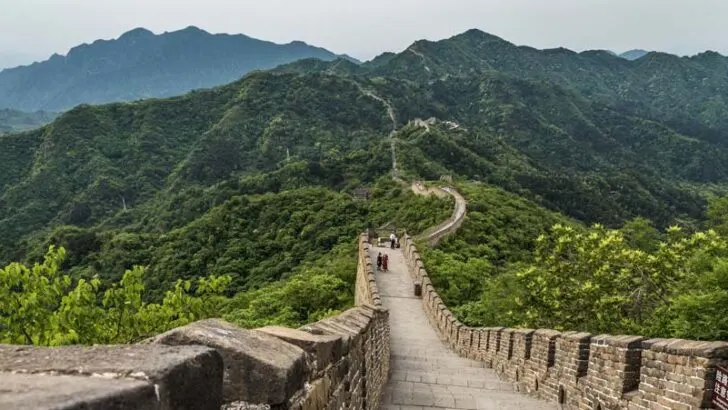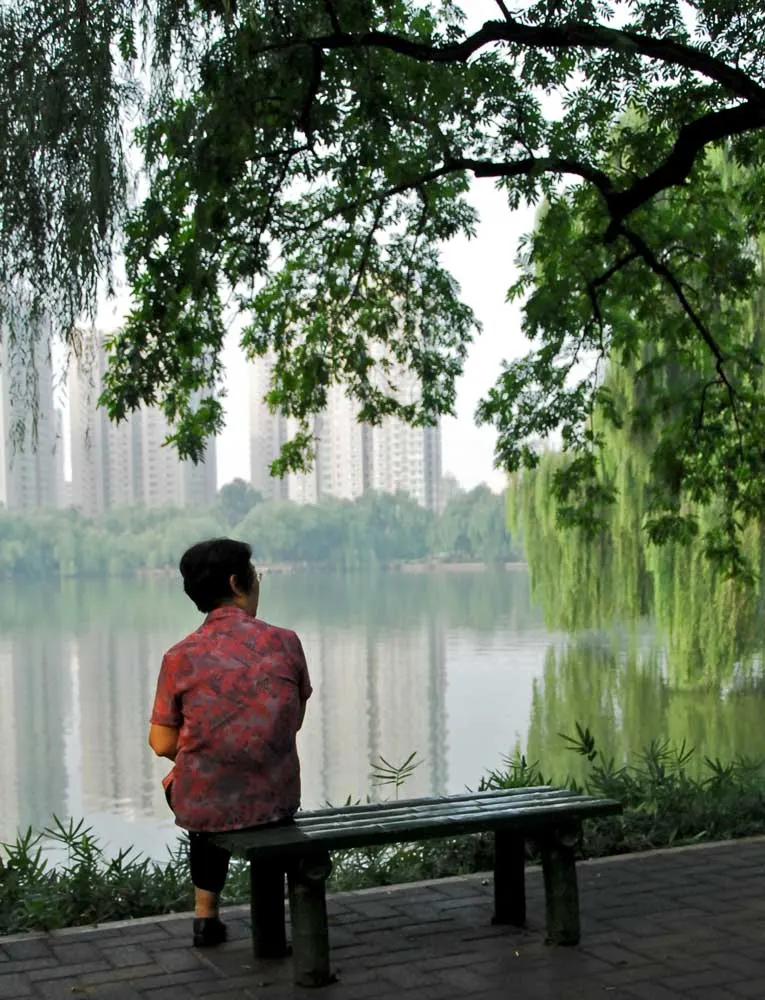Beijing Travel Guide
Overview
Beijing has become one of the most popular tourist destinations in the world. This Beijing Travel Guide covers everything you need to know before visiting China’s capital, full of history and culture. Ever-changing and transforming neighborhoods make Beijing a fascinating city to keep returning to.
Beijing is a popular gateway for those wishing to see and climb The Great Wall of China, with plenty of group and private tours available from most hotels and guesthouses. There are also many Beijing attractions in the city itself; with temples and palaces dating back hundreds of years, and many more things to see and do – don’t miss the Summer Palace and Lama Temple too!
One of the highlights of visiting anywhere in China is trying the delicious food – don’t be afraid to try the street food and make sure you find time for some Peking Duck.
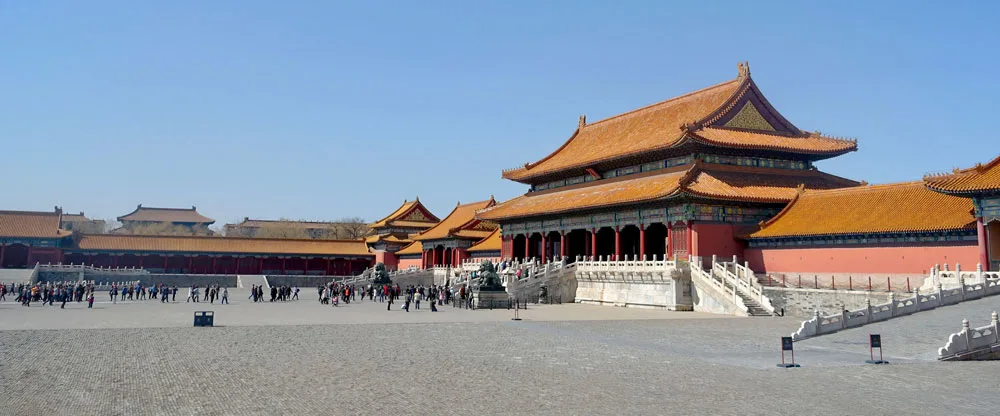
Typical costs
Accommodation
Budget: ¥40 – ¥80 for dorm beds in hostels, with private rooms in budget hotels costing around ¥200.
Midrange: ¥200 – ¥600 for a private room in a nice hotel.
Luxury: ¥750+ with some beautiful courtyards available at midrange and luxury rates.
Transport: Beijing has an extensive Metro system with rides starting at ¥3 – you can get to most tourist attractions in the city using the Metro. You can also catch the local bus for ¥2.
The average cost of food:
Street food – ¥10
A local restaurant – ¥30 – ¥100
Western restaurant – ¥150 +
Cost of Travel in China full guide
Best time to visit
The best time to visit Beijing is from the middle of April through to June and September to October.
The Winter in Beijing can be bitterly cold, with temperatures reaching minus 15 degrees. The pollution also runs high from November to March. However, summer months are hot and busy in Beijing too.
Whilst planning your trip, you also need to avoid the Chinese national holidays – Golden Week runs during the first week of October and Chinese New Year lands around February, with a handful of long weekends throughout the year.
If possible, aim to visit Beijing just after a national holiday – locals all return back to work so attractions and sites are much quieter.
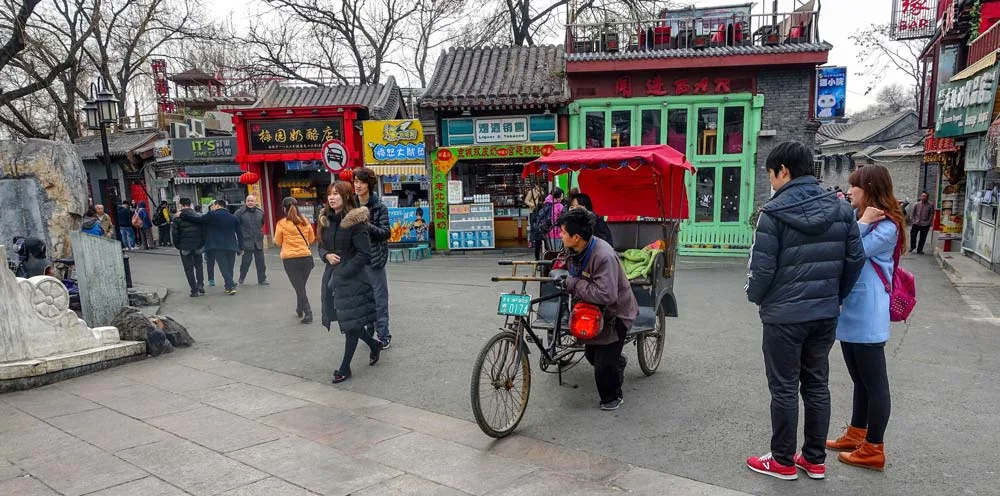
Where to stay in Beijing
Budget:
Leo Hostel is a great choice. They offer a vast array of facilities, especially great for solo travelers. Dorm beds start at ¥57 and private rooms at ¥140.
Happy Dragon City Center in the Dongcheng District. Here you can find private double rooms for as little ¥160.
Midrange:
Peking Station Hotel is a popular choice because of its fantastic location near Wangfujing Food Street and under a 10 minute drive from Tiananmen Square and the Forbidden City. Twin rooms start at ¥420.
We would highly recommend Courtyard 7; a 300-year-old courtyard with traditional-style rooms but all the extra amenities. At ¥428 a night, the courtyard is a short walk from the metro and on a bustling but exciting alley that sells a range of foods, souvenirs and authentic Chinese trinkets.
If you are looking for somewhere a bit more central then check out Hotel Kapok at ¥569, just 200 yards from the famous Forbidden City.
Top End:
For those who want true luxury and their own kitchen too, take a look at The Imperial Mansion, Beijing – Marriott Executive Apartments – apartment prices start at ¥993.
The Park Plaza Beijing Wangfujing is just a few steps from a subway station and offers luxury rooms from ¥800.
Save money in Beijing
China is a relatively cheap place to visit in the world but there are still ways that you can save even more money in the country, allowing you to travel for longer.
- Bargain – When buying from vendors in both markets and small stores, negotiate a price with the seller. If they see you as a foreigner, you will be charged 4 times the actual price.
- Use the bikes – Around Beijing, you will see bikes literally everywhere. You can scan the barcode on these bikes using the WeChat app and pay a very small fee to ride around the city. Plus, when you are finished, you can leave the bike anywhere.
- Eat locally – Stick to the local food and restaurants in Beijing. You can get a delicious meal in a restaurant for as little as 40RMB whilst Western meals will cost you 100+ RMB.
- Avoid the scams – In some sightseeing areas of Beijing, you will find a similar scam. Girls or ‘students’ will invite you a bar, restaurant, coffee shop or tea house, only to order expensive dishes and leave you with the bill. Lauren from Never Ending Footsteps shares her detailed experience of a Shanghai Tea room scam.
- Don’t tip – it is not expected in Beijing.
- Take advantage of happy hours – Bars in Beijing range in price, so check the happy hours and take advantage of them.
- Use Didi – When getting a taxi, use the Didi app. These are slightly more expensive than a normal taxi but some taxis in Beijing will not turn on their meter and overcharge.
- Avoid the Western chains – Whether you fancy a coffee or salad, opt for a local or Chinese brand over global chains such as Starbucks.
- Book early – hotels in Beijing to not offer a cheap rate when booking on arrival, so use CTrip or Agoda to get the best deals ahead of travel.
- Travel in the winter – this is the off-peak season so prices are low. So is the temperature, however, so wrap-up warm.
Best things to do in Beijing
- The Great Wall of China
- Forbidden City
- Temple of Heaven
- Summer Palace
- Lama Temple
- Hutongs
- Stay in a Courtyard Hotel
- Eat Beijing Peking duck
- Wangfujing Night market
- Ming Tombs
- 798 Art District
- The Bird’s Nest & Beijing Olympic Park
- Beihai Park
- Jingshan Hill
How to get to Beijing
Fly – Flights are available from most international airports across the world, as well as smaller domestic airports across China. Beijing Capital International Airport (PEK) offers 11 different airport shuttle bus routes as well as the airport express train which runs throughout the day.
Beijing is not an expensive city so you may choose to catch a taxi to your hotel instead of catching the train – fares to the city centre cost around ¥120.
Train – China has an extensive train network so catching the train to Beijing from another city is not uncommon. However, it is worth noting that there are four different main train stations in the city so check which station is nearest to your accommodation.
For long distances, it is possible to upgrade your ticket: soft sleeper offers comfortable air-conditioned rooms with 4 bunks though you may be sharing with others you don’t know. A few T-class trains offer two-berth compartments with their own toilet. Hard sleepers are composed of six bunks in an open-ended doorless apartment with slightly less room than soft sleepers but are considerably cheaper and a popular choice in China. There are a few weekly trains to international locations such as Mongolia, Russia, Vietnam and North Korea.
Book your train tickets in advance on Ctrip.
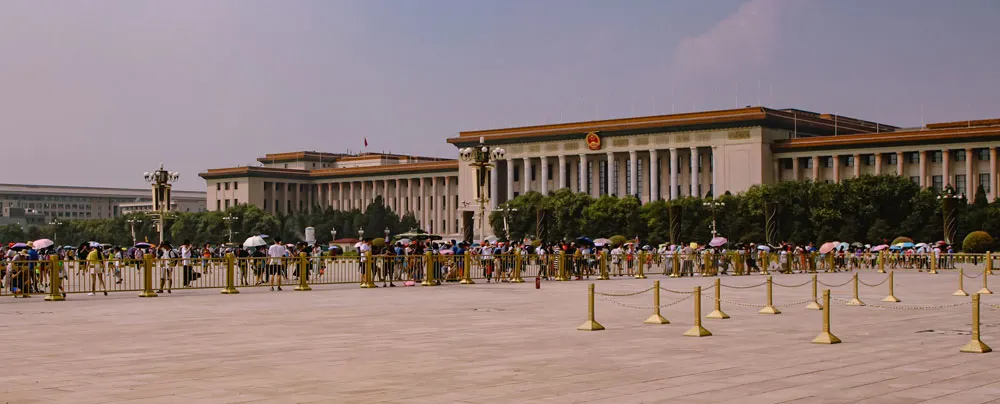
How to get around Beijing
Beijing is a large city so you may wish to research the best way to travel around Beijing for you.
– Cycling is an enjoyable way of getting around the city, with most roads including bike lanes. However, depending on the time of year, it can get warm in Beijing, and with so much to do you may wish to save your energy for sightseeing.
– The Beijing Subway System is modern, safe and convenient for the attractions of the city. Download the Beijing Metro app to navigate yourself around the city.
– Buses are another way to get around the city, with swipe cards making it easier for non-Chinese speakers to get around, however, these are often busy and crowded.
– If you don’t fancy the metro then a taxi would perhaps be the next best option. When getting a taxi, it is useful to have your destination written down in Chinese as very few drivers speak much English.
– Alternatively, you can use Didi – this is China’s version of Uber, which is easy to use, has English translations and ensures you get to the right destination.
– Avoid using Rickshaws as foreign tourists are often overcharged.

